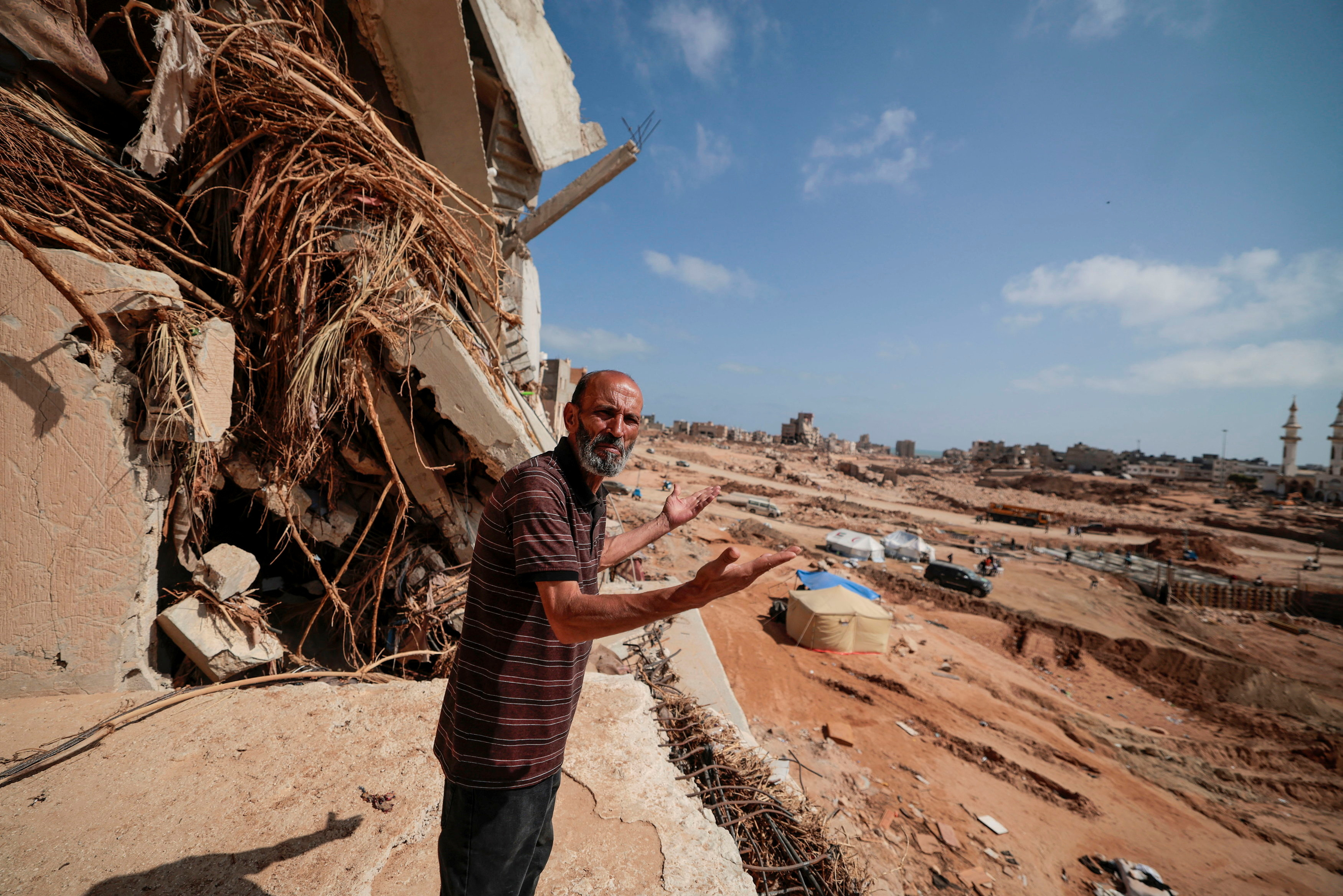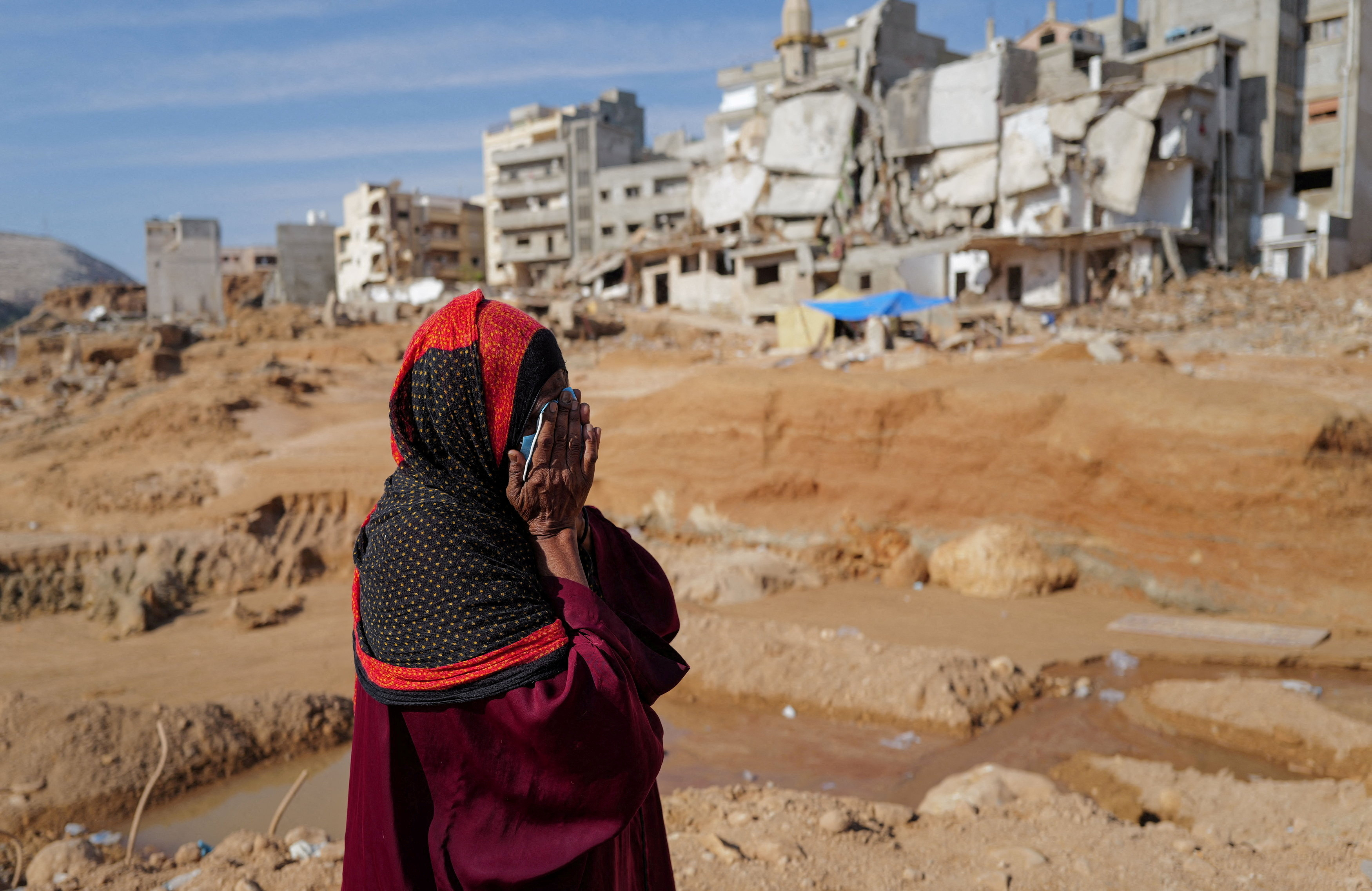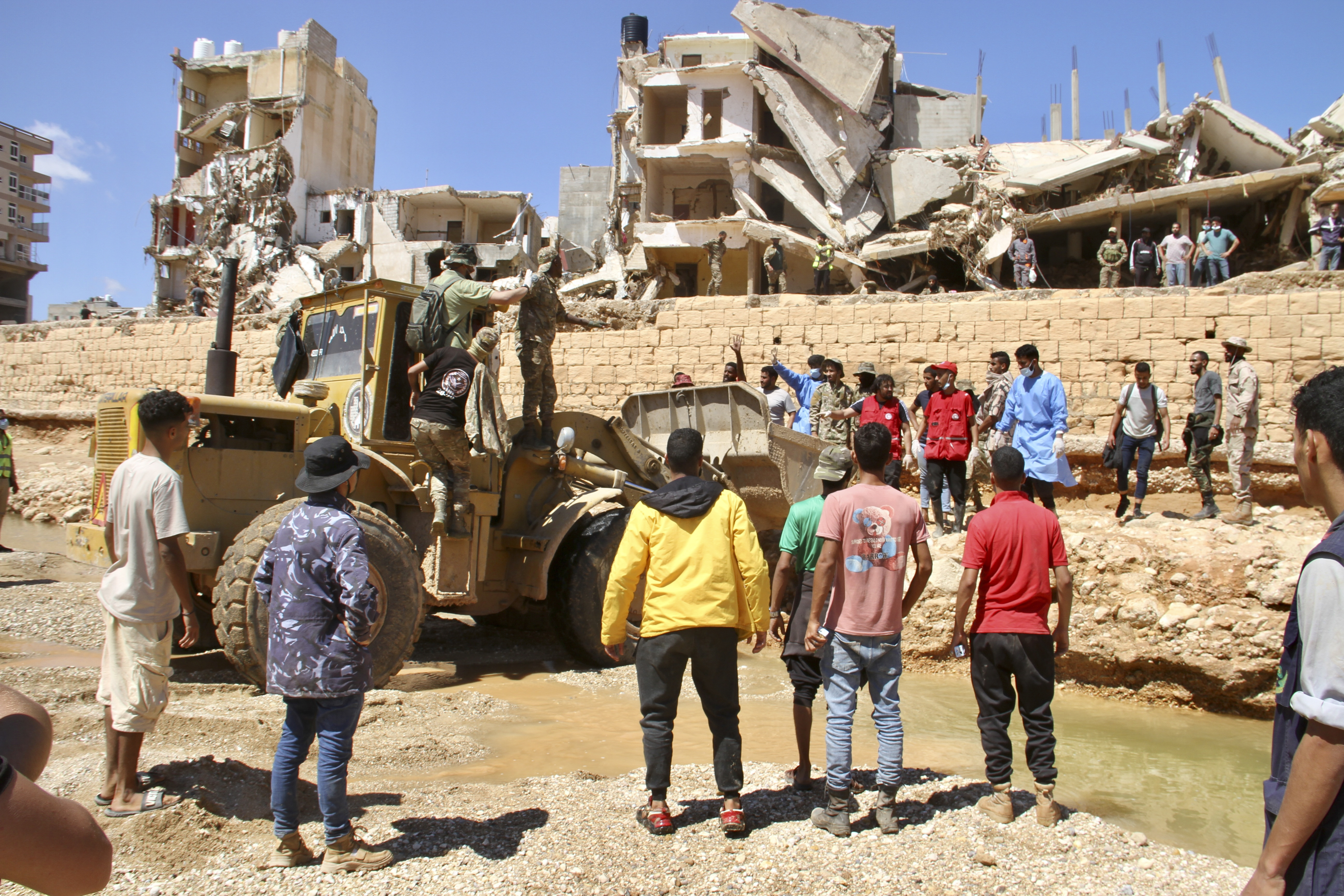
Derna, Libya – About a month after floods devastated Libya’s eastern city of Derna, Dr Khaled al-Shaari was discovered by his neighbours. He had taken his own life near his flood-ravaged home.
His death was not an isolated event. In the weeks following the catastrophe, 25 other Derna residents have died by suicide.
Al-Shaari, 38, had been suffering psychological trauma after losing both his family and home after the two dams in Derna broke on September 10, explained his neighbour, Mohammed Rifaeira.
“He couldn’t bear the shock he faced and found no mental support even a month after the catastrophe,” Rifaei told Al Jazeera. Other neighbours had seen al-Shaari sitting by the door of his ruined home, waiting for news about relatives swept away by the floods.
Once a busy urban hub, Derna and its streets now carry the scars of the overwhelming damage that 30 million cubic metres of rushing water can inflict: buildings crumbled, windows shattered, walls discoloured.
Homes and all sense of place were destroyed in the flood, which claimed as many as 11,300 lives. Muddy handprints of the rescue and relief workers are still visible on bare walls.
The damage extends beyond structures. The faces of the survivors, etched with trauma, are bitter testaments to the horror of what they experienced. And help is hard to find.
‘I’m drowning every day’
Before the flood, 31-year-old Layla Eljerbi was an art teacher. She lived with her family in a small apartment, its walls decorated with her and her students’ artwork, close to the heart of the city.
Her flat was among the first to be hit. “Within moments, it was like my entire life washed away in front of me. The artworks, the photographs, the memories – all gone,” she recalled. Her struggle continues.
“Each night is a battle with sleep; each raindrop is a reminder of the deluge that washed away my life and artwork. Even though I escaped the flood, I’m drowning every day in my mind,” Layla said.
Since the flood, Layla has had acute anxiety. Her hands tremble when the sky darkens and she avoids passing by rivers or any significant stretch of water.
Her diagnosis of post-traumatic stress disorder (PTSD) is one shared by countless others who were impacted by the catastrophic floods. However, with mental health services in short supply, Layla has struggled to find help.
She attends group therapy sessions organised by volunteers but admits it is a far cry from the specialised care she needs. In Derna, medical clinics focus more on physical injuries and diseases, rather than mental health.
“The government needs to realise that the catastrophe is far from over. In many ways, it’s just beginning,” Layla said.
As winter approaches, the potential for further rains and floods leads to fear and anxiety.
Lack of psychological support services
Abdulaziz al-Huni is a member of the Libyan Goodness Team which offers free psychological support to flood survivors. He admits to feeling overwhelmed.

“We’re doing our best, but the scale of the need is overwhelming and resources are thin,” he said.
There are nearly 600 displaced families now living in the eastern city of Tobruk, about 67km (42 miles) to the southeast. About 285 families are in the capital, Tripoli, which is 1345km (836 miles) away. These households all rely upon aid provided by local merchants.
The mental health of displaced people is one of the main factors overlooked by authorities in the wake of any crisis, psychiatrists say. Integrating into new locations can be socially and psychologically challenging. This can exacerbate existing trauma and lead to mental illness or even suicide.
Children’s mental health has also been affected. Dr Marwa al-Saadawi, a psychiatrist at Tobruk Hospital, recalls a young child who came to the hospital struggling to breathe. There was no physical explanation for his symptoms, she explained, “but he mentioned waking up from a dream where he was drowning, causing him distress”.
There is a “huge need for psychological treatment … but we are in a crisis and are prioritising those most affected,” al-Saadawi acknowledges.
“Sometimes, [travelling to] affected people is a challenge, but volunteer teams are doing their best,” she said. Still, no matter how hard her teams work, they cannot address the overwhelming need for support.

Reconstruction
With Libya splintered between two rival parliaments, funding for Derna’s reconstruction is equally fractured.
The eastern House of Representatives has allocated 10 billion dinars ($2bn), and the western Government of National Unity has made a smaller contribution. But how these funds will be disbursed and utilised has not been confirmed.
Residents who have returned to a devastated Derna say their governments have abandoned them; weeks after the flood, conditions in the area are still dire.
Social affairs journalist Iman al-Sweihli, who has been covering the fallout from the floods, said neither government has tackled the issue and called for them to “address it courageously” before it turns into a “disaster”.
Several attempts have been made to communicate the conditions of the displaced families to both governments, explained Faraj Abu al-Khattabiya, the mayor of Tobruk, over the phone. However, there has been no response to calls for help.
Many of the displaced families suffer from acute anxiety, fear and an inability to process the trauma they experienced, according to al-Khattabiya.
Meanwhile, Layla looks forward to the day when she can begin to rebuild her life. Until then, she and others like her remain living reminders of a crisis that shows no end.







